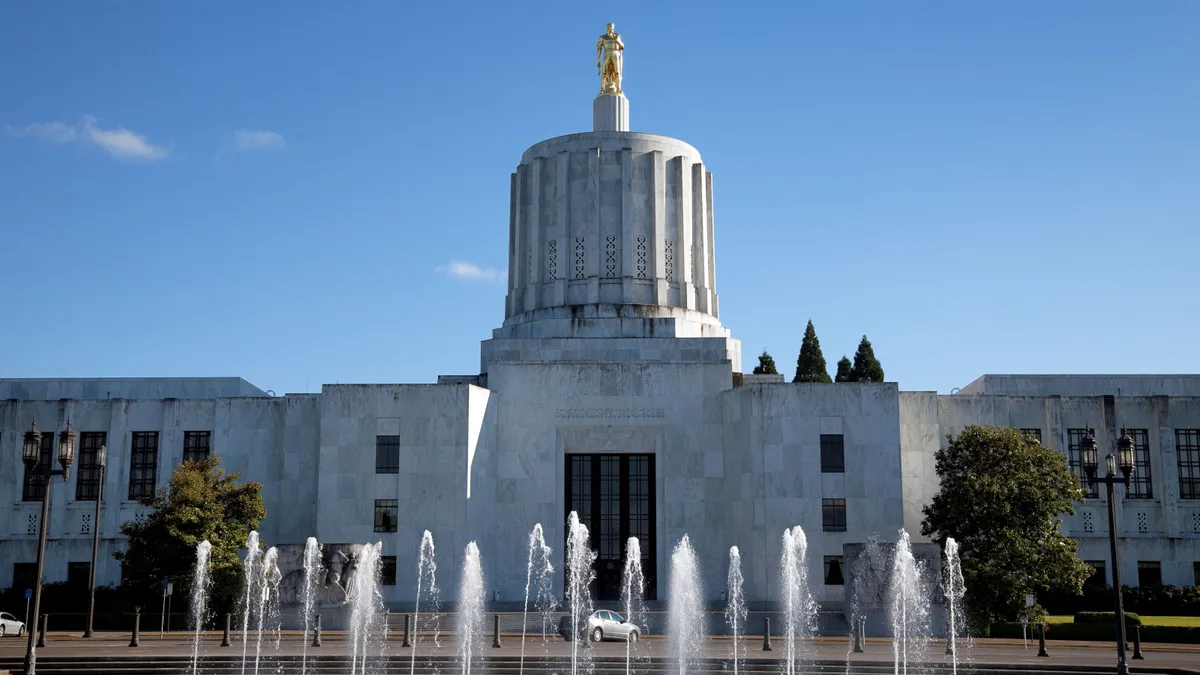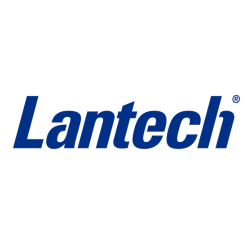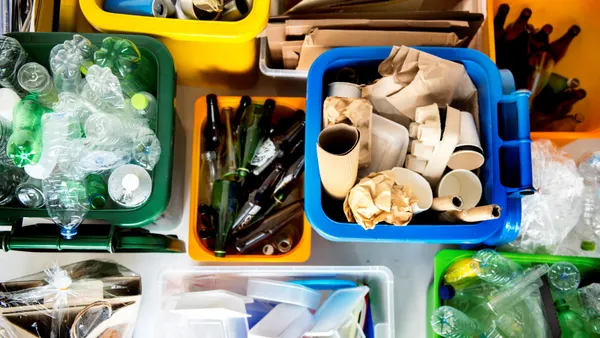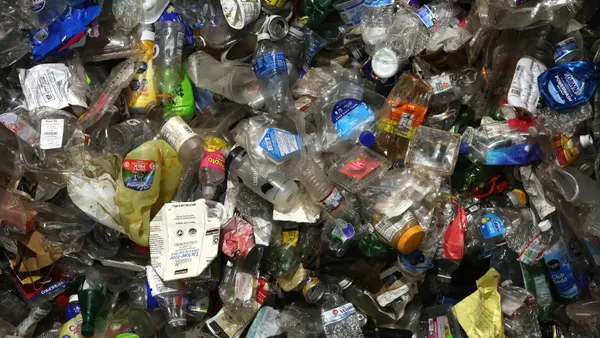Dive Brief:
- The National Association of Wholesaler-Distributors filed a lawsuit last week challenging the law establishing Oregon’s now-active extended producer responsibility for packaging program.
- The complaint alleges that Oregon’s program is “unconstitutional,” citing nondelegation doctrine, federal dormant commerce clause, federal unconstitutional conditions doctrine and federal and state due process. NAW believes the law inhibits interstate commerce and also disputes aspects of how the selected producer responsibility organization is operating, among other issues.
- The Oregon Department of Environmental Quality, the Oregon Environmental Commission and Oregon’s attorney general were named as defendants in the lawsuit in the U.S. District Court for the District of Oregon.
Dive Insight:
Oregon passed the Plastic Pollution and Recycling Modernization Act in 2021, the second packaging EPR law in the United States. Oregon had the distinction this year of becoming the first U.S. state to have its program go live.
EPR programs in different industries have long existed in other countries. While many packaging industry stakeholders were skeptical of EPR in the U.S., some groups have come to support recently passed legislation in states including Minnesota, Washington and Maryland. To date, seven states in total have passed these types of laws, each with slightly different parameters. Oregon’s law allows for multiple producer responsibility organizations, but so far only one is active: Circular Action Alliance.
NAW previously wrote to Oregon DEQ on June 4 asking for a one-year delay to the effective date or enforcement of the Plastic Pollution and Recycling Modernization Act. NAW says it represents some 30,000 firms, with its membership including line of trade associations as well as distribution companies.
“While NAW supports the goal of a circular economy, the Oregon EPR law as enacted is unconstitutional,” said NAW President and CEO Eric Hoplin in a statement. “Oregon chose to shift the burden to the parts of the supply chain that have little to no control over decisions to design, reduce, reuse or recycle a product.” The complaint asserts that “there has never been an EPR program like this.”
Looking beyond Oregon, NAW is “reviewing all of the various proposals to implement EPR programs wherever they are being discussed,” according to a spokesperson. In Colorado, for example, NAW sent a letter to the Department of Public Health and Environment on July 23 requesting a one-year delay to the July 31 reporting deadline for the state’s packaging EPR program.













